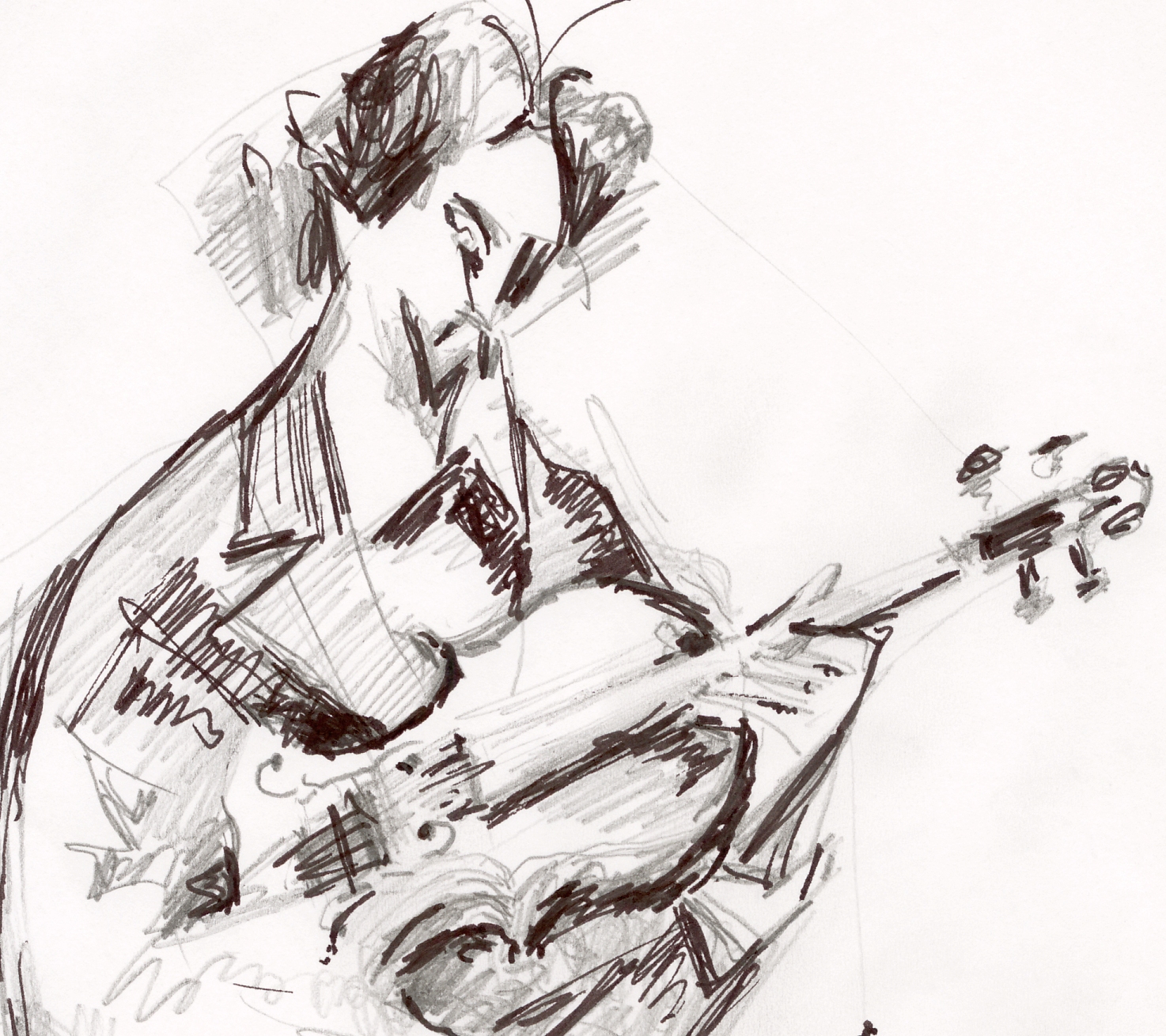Isn’t this what musicians are supposed to do? Well, yes. However, i remember myself in the past being asked to play something on the spot on numerous occasions and i must say i could not respond in an effortless and convincing way. I felt weird when everyone took it for granted that i was a fearless performer even though i didn’t really feel this way. There was an inconsistency between my musical efforts and my ability to satisfy the humble demands people have from me in the real world. Have you been there? I know i have.
The problem was that i had a vague idea of what i could and what i could not perform. My repertoire was poorly organised. Since then i have been trying to organize my music. I realized it is always better to have some pieces of music ready to perform instead of a lot more “not so sure” ones. I also noticed on the way that many skilled and devoted musicians are often very reluctant to take out their instruments and share a few notes within an informal context. They suffer from this same messy repertoire syndrome. I can think of a few reasons for this:
- It is common for musicians to be overwhelmed by the vast volume of great music, countless learning systems and endless resources. As a result, we lose focus and perspective by becoming superficially inolved in too many concepts and pieces of music.
- Pieces of music often end up being steps on the academic ladder instead of a long term performance investment. When we treat any musical material as a measure of academic status we underestimate it and fail to embrace it creatively. Inevitably, once this music fulfills its purpose it is left alone to evaporate.
- Musicians performing only at carefully planned and polished events develop a stiff performance mentality shaped and dictated by the very nature of this type of events. These formal rituals cannot address the complexity and randomness of all possible contexts for playing music. This is probably more evident among classical musicians where the notion of practising is glorified over spontaneous performance.
Benefits of thinking repertoire
Building a solid repertoire is beneficial both musically and socially.
- It cements our relationship with music. Being able to deliver a simple but coherent musical whole with a beginning and an end solidifies our identities as musicians. A comprehensively built repertoire takes better care of our music lives than years of studies, exercises and reputation. It creates a huge confidence boost and gets us straight to the point of sharing our best musical self with the world. It also encourages that valuable feedback and encouragement that keeps us going. I have seen many people giving up playing music after having difficulties creating that identity.
- It encourages responsible practice. I have talked in an older post about the dissociation between practice and playing and how ‘practicing’ may prove meaningless or even counterproductive. You know when we are fooling around on our instruments irresponsibly thinking we are just having fun? Well we are, but at the same time we are also being trained to play irresponsibly. See the point? When we fool around we are getting better at fooling around. When we perform we are getting better at performing. Life records everything.
- It enhances our ability to focus on a task and carry it to completion. Goal setting is inextricably linked to repertoire building. Focus is necessary if we want to avoid being overwhelmed by all this information and music readily available. When we work on our repertoire and have a clear idea of what we want to achieve we have a framework that keeps us on track.
- It waters our taste and musicianship. When we start shaping the music we love according to certain criteria -like what we think people will enjoy- we naturally start looking for ways to make our music more interesting: we look for an engaging intro, to create a contrast somewhere in the middle or come up with a funny ending. This process immerses us into important musical elements like build up, structure and space. Elements that are actually absent during sterile practicing and present in good compositions and improvisations.
- It lends a distinctive character to our playing. It is a great idea to have a few tunes we feel comfortable with and regularly perform. Many professional musicians have identified themselves with certain musical material and people love them for doing so. Music we regularly perform gets better and better while molding our overall music character.
- It broadens and sharpens our criteria for musical value. I have many times been attracted to the naive and unpretentious playing of a beginner willing to share his latest musical achievements. On the other hand, i have been repeatedly repelled by the incoherent and tense playing of a “skilled” musician trying to convince me of how good he/she is. The simplest but honest and comprehensive performance deserves our respect.
- It upgrades the quality of musical and social interaction. By definition, our readiness and willingness to perform creates more opportunities for playing and discourse. The more we can share the stronger our bonds with other musicians. At the same time the gesture of providing music has great social value. It strengthens social relationships, cohesion and trust. After all, music is a social affair and people tend to appreciate it more often under social terms although we have been largely conditioned to do the exact opposite.
Start building your repertoire
I highly suggest creating a written list of “ready to perform music”. Once we put down our repertoire the need to expand it grows in us. Give it a go keeping in mind that the majority of our listeners don’t bother being judgemental. And they certainly don’t care so much about the technicalities of our interpretation. A well minded repertoire creates artistic weight and promises a healthier musical and social life.
